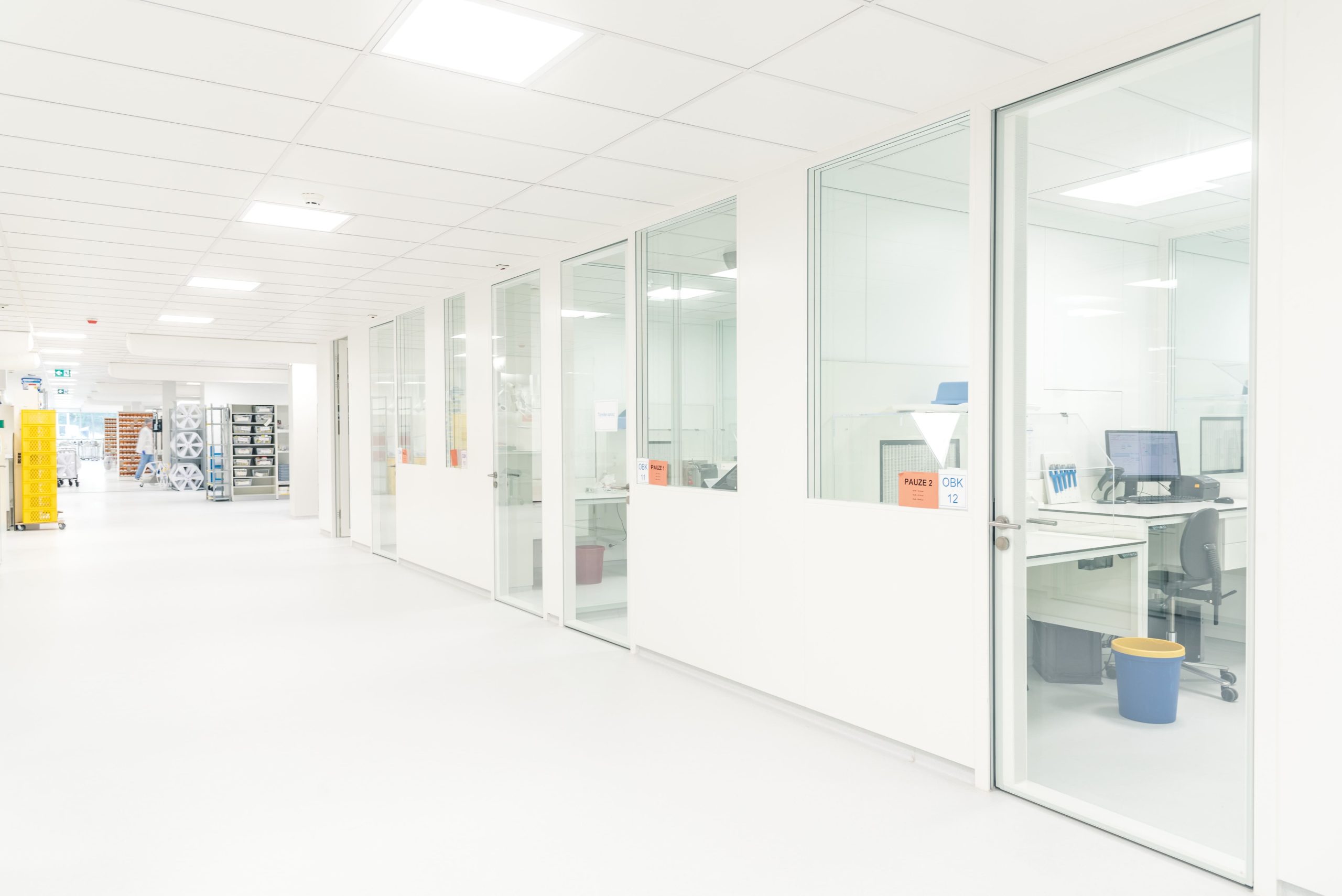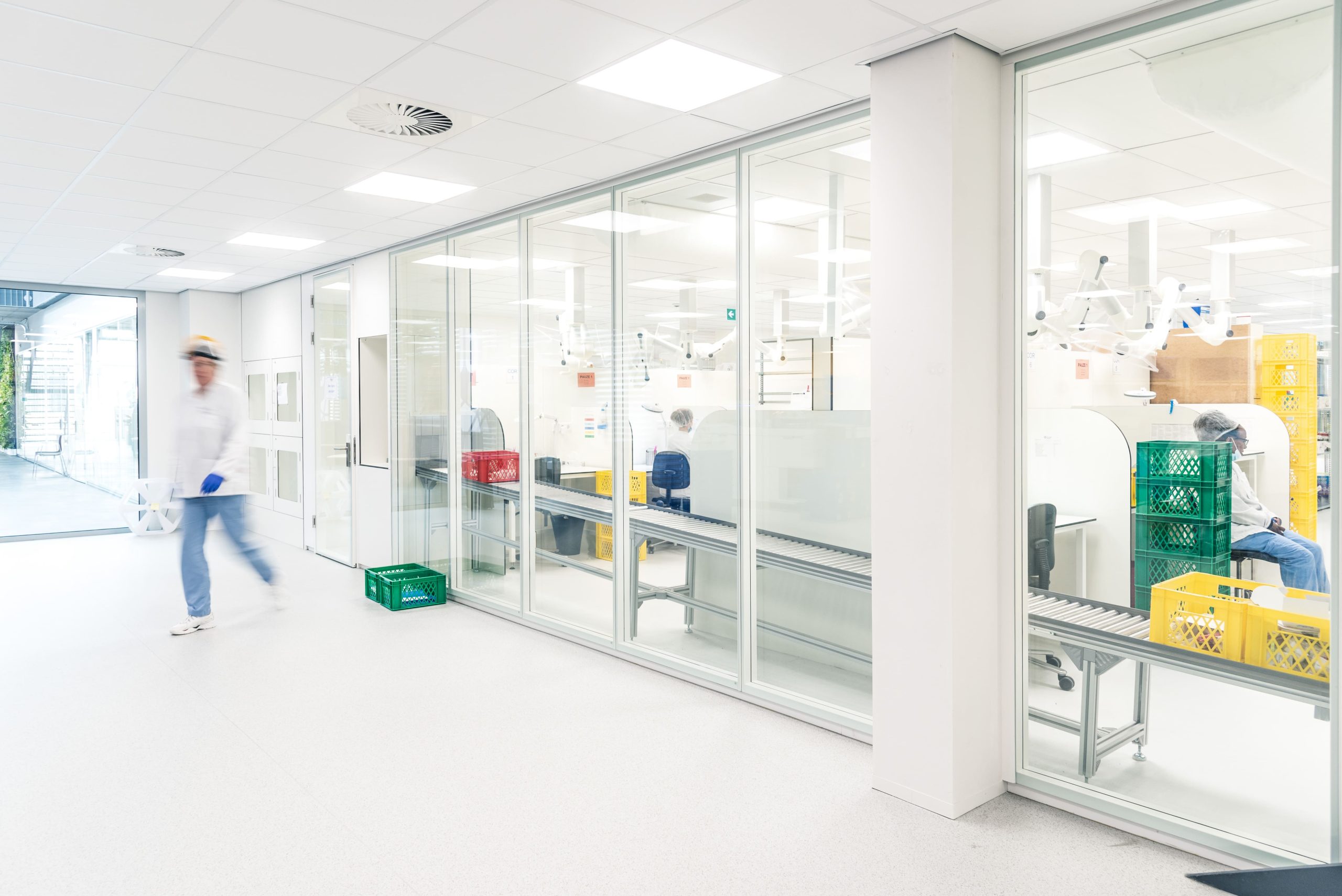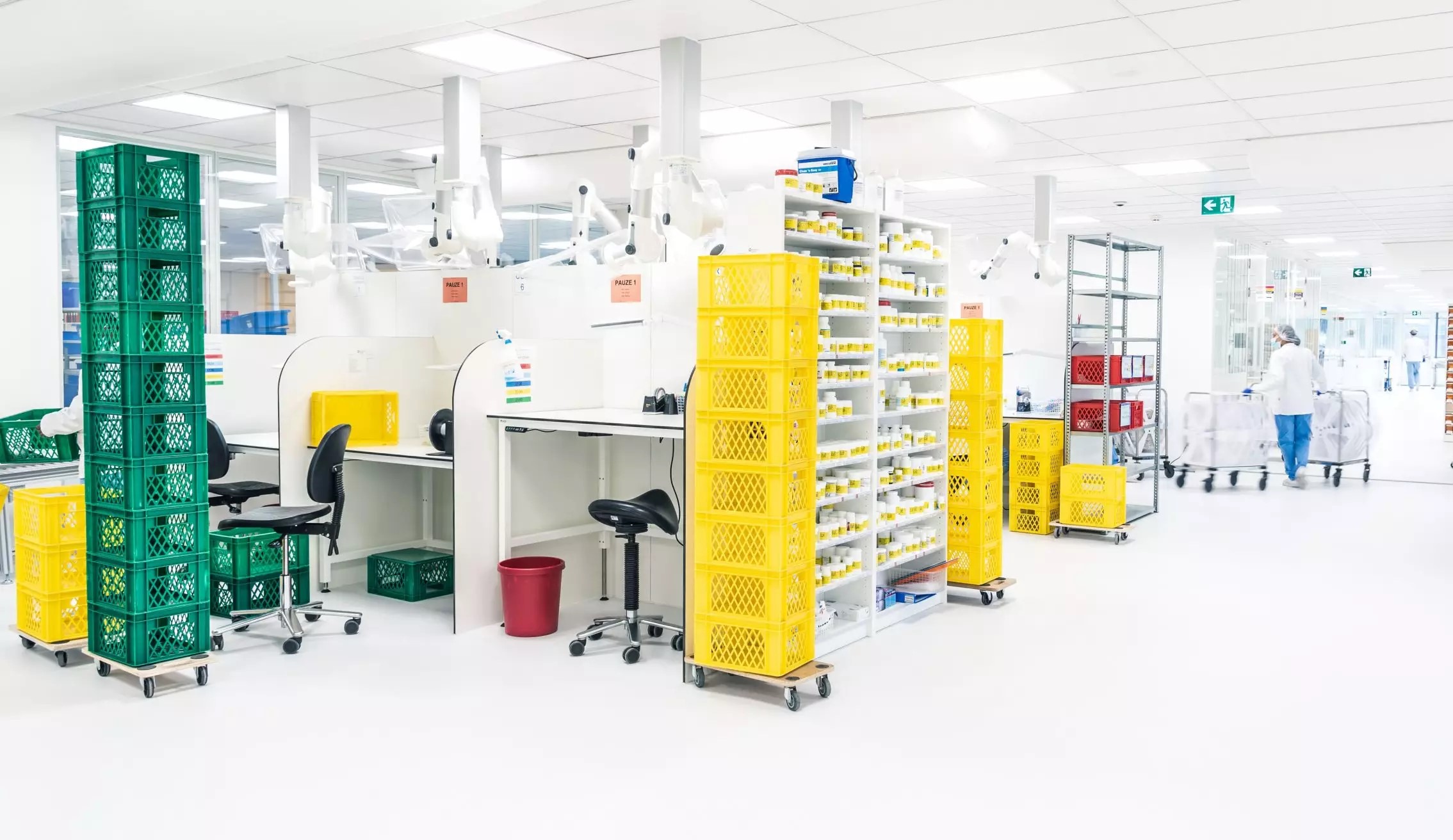Specific research and production processes take place in various industries, requiring a high degree of precision and the right conditions. Cleanrooms were created to achieve the desired end result. But what exactly is a cleanroom and why do you need one? We are happy to explain.
What are cleanrooms and what are they used for?
A cleanroom is a unique, controlled environment designed to minimise contamination, in which the presence of particles, such as dust, micro-organisms and aerosol particles, as well as environmental conditions such as temperature, humidity, and air pressure are strictly controlled.
The objective? To create the most sterile possible environment for research, innovation and production processes sensitive to contamination. These spaces are essential in industries where even the smallest contaminants can make a tremendous difference, such as high-tech, biotechnology, and pharmaceutical production.

Why are cleanrooms crucial for these operations?
Cleanrooms play a crucial role in controlling and preventing contamination by providing an environment that is free of typical contaminants such as particles, micro-organisms, and chemicals. This is vital because even the smallest contamination can cause products to fail, invalidate research results, and in some cases even endanger human lives.

Applicable industry standards and regulations
Strict international standards, namely ISO 14644-1 and European GMP requirements, are enforced to ensure the high quality and excellent operation of cleanrooms. We are happy to explain them.
ISO 14644-1
The international ISO 14644-1 standard was specifically created for cleanrooms. This standard has 9 different cleanroom classes, each indicating the maximum allowable concentrations for particles per cubic metre and the size of the particles.
| ISO classification number | ≥ 0,1 µm | ≥ 0,2 µm | ≥ 0,3 µm | ≥ 0,5 µm | ≥ 1,0 µm | ≥ 5,0 µm |
|---|---|---|---|---|---|---|
| ISO Class 1 | 10 | – | – | – | – | – |
| ISO Class 2 | 100 | 24 | 10 | – | – | – |
| ISO Class 3 | 1.000 | 237 | 102 | 35 | – | – |
| ISO Class 4 | 10.000 | 2.370 | 1.020 | 352 | 83 | – |
| ISO Class 5 | 10.000 | 23.700 | 10.200 | 3.520 | 832 | – |
| ISO Class 6 | 1.000.000 | 237.000 | 102.000 | 35.200 | 8.320 | 293 |
| ISO Class 7 | – | – | – | 352.000 | 83.200 | 2.930 |
| ISO Class 8 | – | – | – | 3.520.000 | 832.000 | 29.300 |
| ISO Class 9 | – | – | – | 35.200.000 | 8.320.000 | 293.000 |
GMP requirements
There are 4 different cleanroom or purity classes, namely A to D, based on GMP requirements. Class A has the highest purity requirements and D the lowest. The classification is determined depending on the particle density at rest and in operation.
| Situation: | At rest | At rest | In operation |
In operation |
|---|---|---|---|---|
| Classification | ≥ 0,5 µm | ≥ 0,5 µm | ≥ 0,5 µm | ≥ 0,5 µm |
| A | 3.520 | 20 | 3.520 | 20 |
| B | 3.520 | 29 | 352.000 | 2.900 |
| C | 352.000 | 2.900 | 3.520.000 | 29.000 |
| D | 3.520.000 | 29.000 | No limit | No limit |
Building a cleanroom
Cleanrooms are always custom-built but there are several requirements that are essential for cleanrooms:
Air filtration and management
An essential part of any cleanroom is the air filtration and management system, including HEPA and ULPA filters. These systems ensure the air in the cleanroom is continuously purified of contaminants.
Protocols and procedures
Standard operating procedures (SOPs) in cleanrooms are essential for maintaining cleanliness, with training and staff compliance being crucial.
Monitoring and maintenance
Constant monitoring of cleanroom conditions and periodic maintenance and validation processes are necessary to ensure long-term performance.
More information about cleanrooms?
A cleanroom is crucial in many specific cases. Would you like to receive more information or are you curious about the possibilities? Contact us directly. Our specialists will be happy to assist you.
Contact us +31(0)341 465 211




